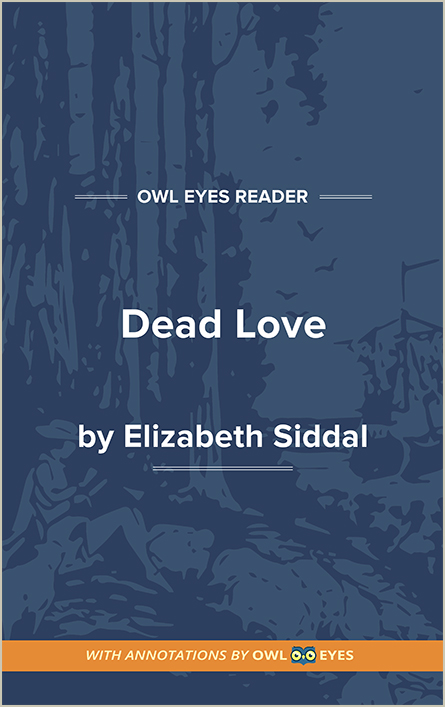- Annotated Full Text
- Literary Period: Romanticism
- Publication Date: 1899
- Flesch-Kincaid Level: 8
- Approx. Reading Time: 0 minutes
Dead Love
In “Dead Love,” Elizabeth Siddal’s jaded speaker cautions a younger, more innocent audience against mourning a lost love. The speaker claims that true love always fades, eventually leaving the lovers alone. The rhyme scheme is fairly straightforward with few deviations, and Siddal utilizes several powerful rhetorical strategies and metaphors to convey the poem’s main claim: earthly love is temporary and not worth mourning. She uses familiar language such as “my dear” and “sweet” in order to convey her closeness to this audience and her influence over them. While the poem simply states that true love is false and therefore should not be mourned, Siddal's ability to captivate her audience by building off romantic tropes reveals her poetic talent.
- Annotated Full Text
- Literary Period: Romanticism
- Publication Date: 1899
- Flesch-Kincaid Level: 8
- Approx. Reading Time: 0 minutes

